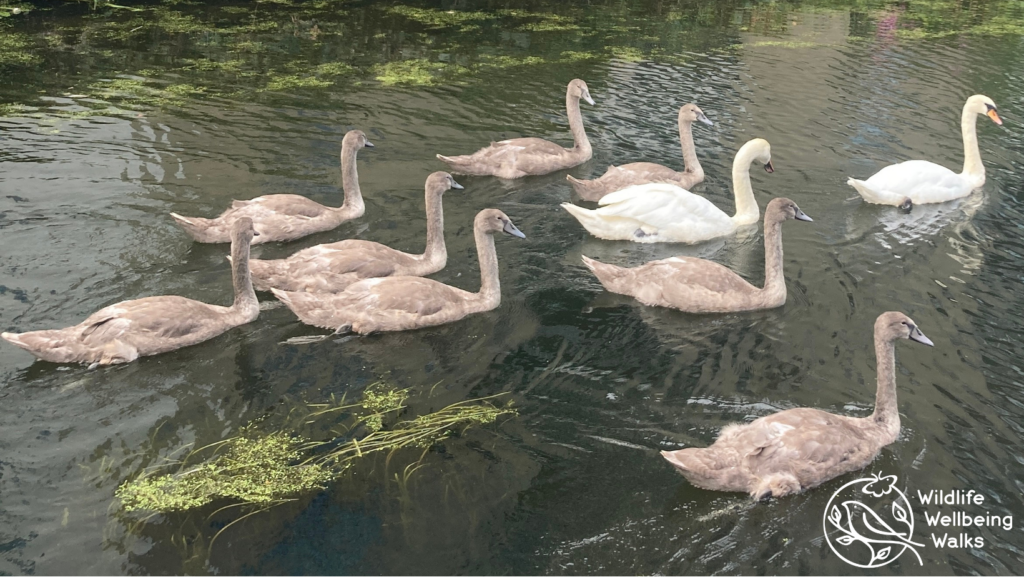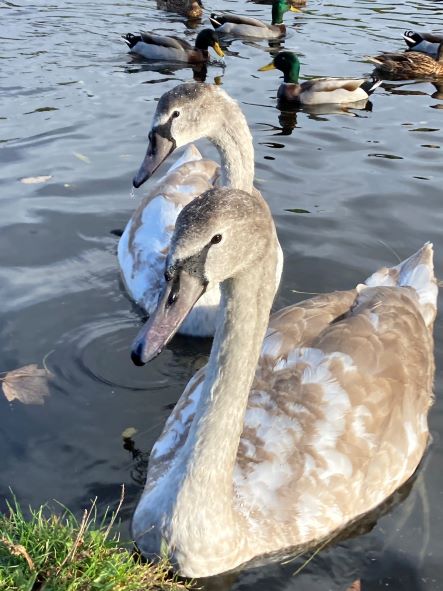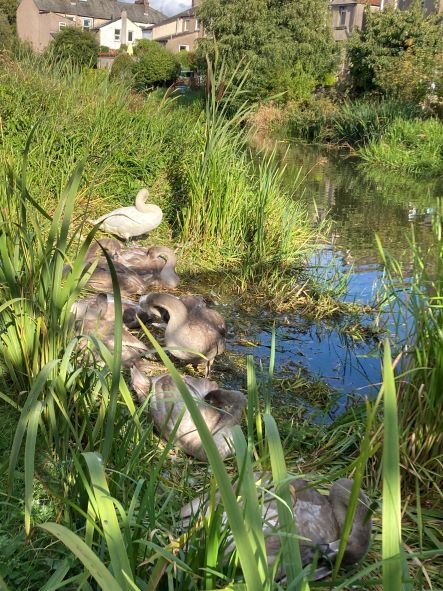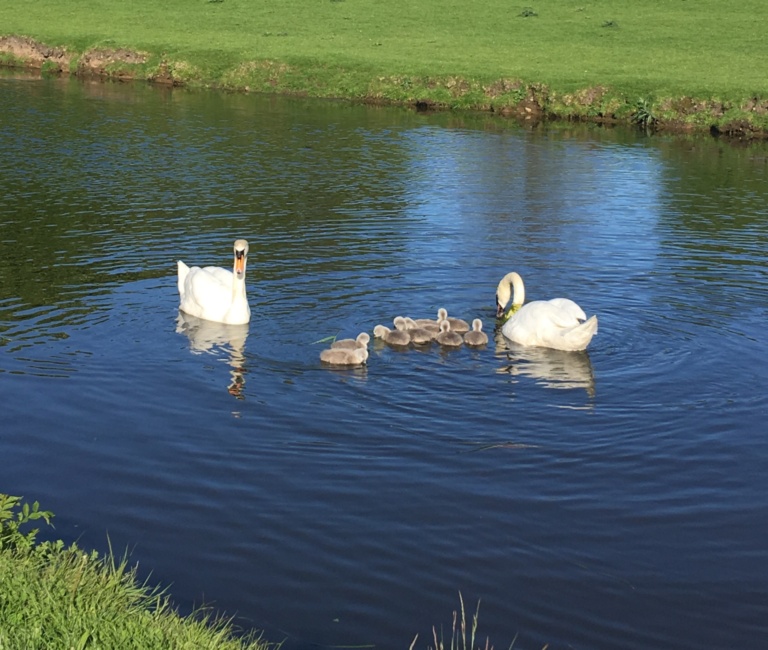
Mute swan
Cygnus olor
Whilst my background is as a botanist, I also love birds and one constant in my time in Lancaster has been the remarkable mute swans that nest on the canal. These birds have consistently reared 6-9 cygnets a year (and as far as I can tell it has been the same pair) for 14 years. As a species which doesn’t start breeding until age 4, an average survival age of 10 years, and typically 4-7 eggs, these are remarkable birds indeed. If anyone knows whether these are the same birds, or a succession of different pairs, I would love to know!
These are resident birds, so don’t migrate very far, and in the summer you can often see ‘gangs’ (in the nicest possible way!) hanging around on the Lune. These are the non-breeding young adults who are working out who to pair up with. Find out more about the bird- (and plant-) life in Lancaster on one of my regular events.


As many of you will know, unmarked swans in the UK have traditionally been claimed by the monarchy, although King Charles III has changed this slightly to cover only certain areas of the Thames. They appear in folklore (such as Hans Christian Anderson’s ‘The Ugly Duckling’), and of course there is the usual warning not to get too close because ‘they can break your arm’. Rest assured that this is most unlikely (according to this article from Country Life), but you should still give them plenty of space, particularly when they are nesting or with their young. The males can (quite rightly!) become aggressive when defending their young. The same applies to dogs – please keep them on a lead, well away from any birds.

These magnificent birds are a common site in our waterways, but have recently come under some threat from avian flu. Devastatingly, the Lancaster canal pair lost all of their cygnets (which were almost fully grown) in autumn 2022 to the outbreak, but survived themselves. This resistance in the adults gives us some hope for the future, and it appears that population numbers are increasing. A few tips to stay safe (for both you and the birds):
- If feeding birds, avoid doing so on hard surfaces (it can promote the spread of bird flu, and can damage the birds’ beaks). Instead, throw into the water.
- Do not feed bread. This is like junk-food for the birds, and can cause dangerous algal blooms especially in stagnant water like the canal. Seeds are a good alternative, as are peas (although best to defrost them first!).
- Avian flu is highly contagious, so be careful about any close contact. As with any wildlife, it’s probably best to observe from a distance so you don’t disturb them. If you do find any dead/dying birds, don’t touch them, and keep your dog away. If you do have any contact, don’t touch your face or eat anything, and wash your hands thoroughly as soon as possible. For all of the latest information, please visit the RSPB page on avian flu.
